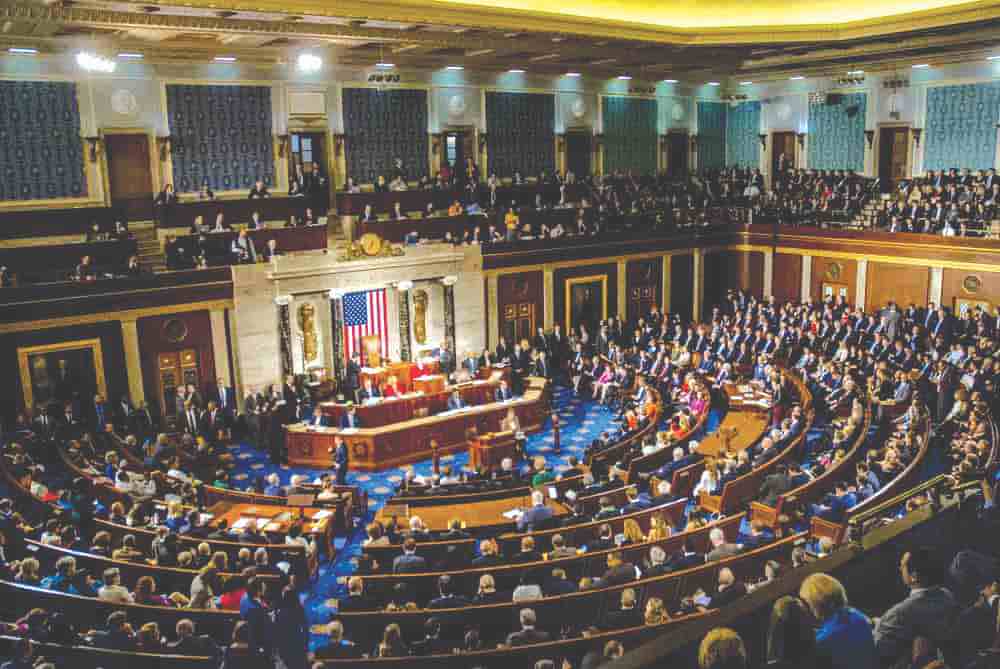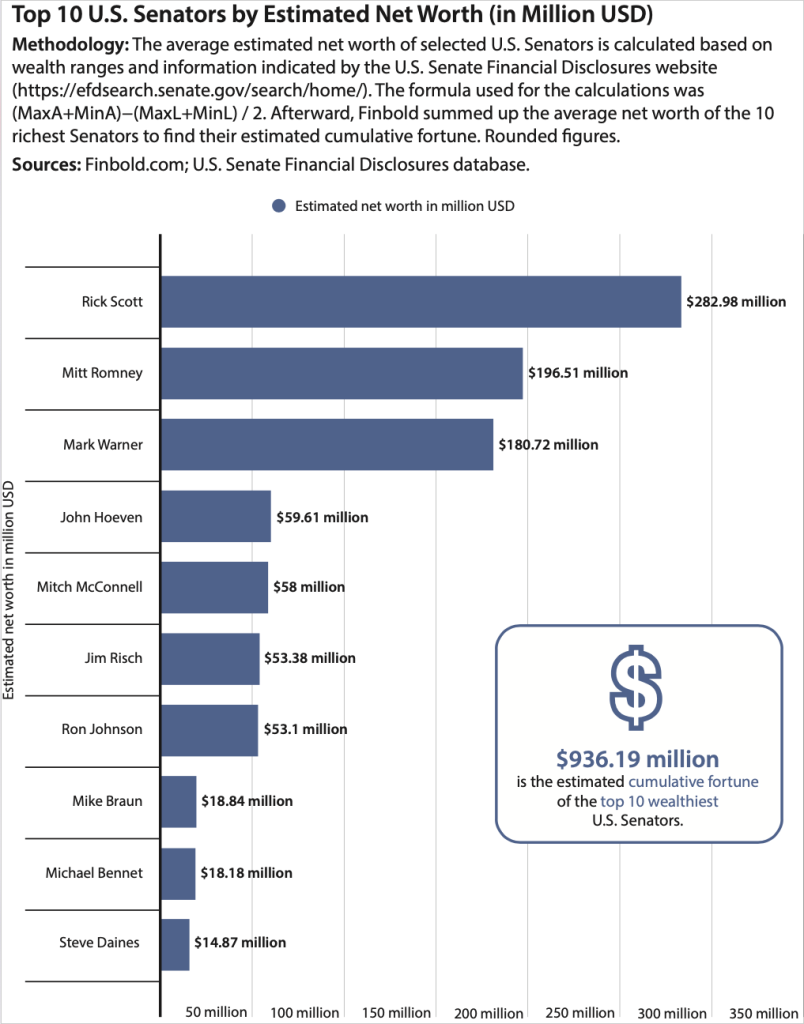June 20, 2024. Andreja Stojanovic

The passing of the STOCK Act in 2012 enshrined the wealth and activities of U.S. elected officials as a matter of public interest, and the 2020 congressional insider trading scandal indeed piqued the interest of the public.
In this line, new Finbold’s research found that the fortunes of the ten richest U.S. Senators amounted to approximately USD 940 million. Additionally, the official financial statements reveal that the figure may be underestimated by nearly USD 600 million or overestimated by as much as USD 600 million.
The numbers also show that, by a significant margin, Rick Scott of Florida is the wealthiest individual in the Senate, with an estimated net worth of nearly USD 283 million. In context, his wealth exceeds the combined fortunes of Senators John Hoeven, Mitch McConnell, Jim Risch, Ron Johnson, Mike Braun, Michael Bennet, and Steve Daines, which amounts to just under USD 280 million.
Estimating the richest members of Congress in 2024
Simultaneously, estimating the actual wealth of some of the country’s most influential people poses a unique problem.
The regulations governing which information is included in their financial statements allow for the exclusion of certain measures of wealth, reporting of value in ranges, and for a relatively generous grace period before any statements need to be filed. For example, any stock investment that equals or exceeds USD one million and one US dollar may be reported as a range between USD 1,000,001 and USD five million. The challenges only grow more pointed as the sums increase. While the USD one to USD five million range is already arguably so wide that its usefulness as a gauge of affluence is dubious, investments greater than USD five million may be reported as a range of up to USD 25 million.
Congressional finances reporting remains imprecise
Such reporting practices lead to significant variations in estimates. Rick Scott’s fortune, on average, amounts to USD 283 million, it may run as high as USD 453 million or as low as USD 112 million.
Similar uncertainty persists across the board. The difference between the maximum reported net worth of Utah’s Mitt Romney and the lowest stands at some USD 250 million as it ranges between just under USD 70 million to over USD 320 million. While not present among the top ten, the variations in possible upper and lower bounds of assets and liabilities of certain politicians – such as Marsha Blackburn of Tennessee – mean they are equally likely to be millionaires and, much like the U.S. government, significantly in debt.
The figures are only made less reliable by the numerous reporting exemptions, including several types of gifts, liabilities, retirement accounts, most savings accounts, and more. Another issue frequently marring the accuracy and relevance of the filings is the maximum permissible delay between Senator’s stock trades and their reporting to the public.
Is a reform to Congress net worth reporting standard needed?
In recent years, the trading activity of members of the House of Representatives and the Senate – commonly characterized by suspicious timing or unconventional stock picks – has led to increased calls for reform to reporting and investing regulations.
Thus far, all efforts to effect change have been unsuccessful. One of the most high-profile examples came in September 2022, when then-Speaker Nancy Pelosi promised the reform bill would face a vote within a month. No such vote materialized and subsequent efforts are, by the time of publication, similarly without result.
Along with the questions of fairness and worries of corruption that have arisen over the years – the aforementioned 2020 congressional insider trading scandal, the Justice Clarence Thomas scandal, the Governor Rod Blagojevich corruption scandal, and many others – there have been many prominent events in which private financial interest dictated national policy.
What makes the current deficiencies worse is that many of the events in which private, national, and personal financial interests were intermingled led to outcomes considered disastrous in 2024.
Andreja is a skilled finance news reporter, copywriter, and screenwriter with a growing fascination for finance, especially in the wake of the retail investing boom. He has since committed himself to providing rigorous coverage of financial news and the exploration of intricate financial concepts.






